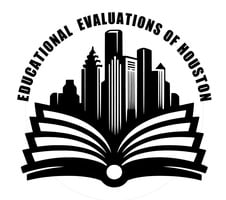Diagnosing learning disabilities
key components of a comprehensive assessment for learning disabilities:
Determining whether an individual has a specific learning disability involves various factors. Although the definition of a learning disability has evolved over time, the core concept remains consistent: a learning disability occurs when someone with average to above-average intellectual ability struggles in one or more academic areas.
It is estimated that 5 to 15 percent of school-aged children have a learning disability, with approximately 80 percent of these cases involving reading-related disabilities such as dyslexia. Additionally, around one-third of students with a learning disability are thought to also have ADHD.
To diagnose a learning disability, a student must meet four criteria:
- Struggle in at least one academic area.
- Academic skills that are significantly below age-appropriate expectations, causing issues in school or everyday life.
- Difficulties begin during school age.
- Difficulties are not due to other factors such as vision or hearing problems, intellectual disability, neurological condition, lack of instruction, language issues, or economic or environmental disadvantages.
When assessing learning disabilities, we begin by examining how an individual processes and learns, focusing on the following cognitive skills:
- Verbal abilities
- Reasoning abilities
- Long-term memory
- Short-term memory
- Auditory processing
- Visual processing
- Processing speed
These cognitive skills play a critical role in an individual’s ability to learn, retain, and apply new information.
We also evaluate the following academic areas:
- Basic reading skills
- Reading comprehension (both timed and untimed)
- Reading fluency
- Phonological processing
- Math calculations (both timed and untimed)
- Math reasoning
- Written expression
- Oral expression
- Listening comprehension
- Spelling
Throughout the evaluation process, as discrepancies or significant weaknesses arise, we may further investigate those areas by administering additional assessments. We use the assessment information to provide tailored recommendations for both school and home environments.
Call Now for more information on LD Testing (346) 244-3363
